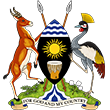![]()
UNHCR

Upcoming meetings
9 –1 3 O CTO BE R 2 02 3, 74th session of the Executive Committee
1 8 O CTO BE R 2 0 2 3; Quarterly informal briefing on the Global Compact on Refugees
7 NO VE MBE R 2 0 23; Quarterly informal briefing on the Global Compact on Refugees
5 D E CE MBE R 2 0 2 3; Ad hoc Committee of the General Assembly for the announcement of voluntary contributions to the Programme of the United Nations High Commissioner for Refugees for 2023 (pledging conference)
1 3 - 1 5 DE CE MBE R 2 0 2 3; Second Global Refugee Forum
About UNHCR
United Nations High Commissioner for Refugees (UNHCR), also known as the UN Refugee Agency was created in 1950 to help millions of Europeans who had fled or lost their homes during the Second World War. Today, UNHCR protects and assists millions of displaced and stateless people around the world.
United Nations High Commissioner for Refugees mandate is to lead and coordinate international action to protect refugees and to resolve the refugee problems worldwide. Its main purpose is to safeguard the rights and wellbeing of refugees. In so doing, we try to safeguard their fundamental human rights in their countries of asylum, including by supporting their integration in national programmes and services. Longer-term, we work to ensure that refugees won’t be sent back against their will to a country where they could face persecution. We also support them to resettle in third countries or repatriate voluntarily to their homeland when it is safe".
Uganda @UNHCR
File Photo: UNHCR Uganda Country Representative, Mr. Matthew Crentsil and Uganda Mission, Geneva representative, Mrs. Mary Namono Kibere at a recent Mission in Nakivale Refugee Settlement, Uganda
This years 74th session of the Executive Committee taking place from 9-13 October, Hon. Hilary Obaloker Onek, Minister for Relief, Disaster Preparedness and Refugees together with a team of 5 shall be representing Uganda.
As of 30 November 2021, Uganda hosts over 1.5 million refugees and asylum-seekers mainly from South Sudan, the Democratic Republic of Congo (DRC) and Burundi and is the country hosting the most refugees in sub-Saharan Africa.
Over 80% of refugees are hosted in 13 districts in the North and South-Western regions and in the capital Kampala. They live in villages known as settlements, where they co-exist with communities that host them. This approach, combined with progressive refugee laws and freedoms, provide refugees in Uganda with significant prospects for dignity and self-reliance.
In coordination with the government, UNHCR and partners continue to provide protection and humanitarian assistance to refugees in Uganda and support efforts towards a comprehensive refugee response.
Uganda implements the Comprehensive Refugee Response Framework (CRRF) and Global Compact on Refugees (GCR), emphasizing the inclusion of refugees into national systems, particularly in the education, health and livelihoods sectors.

